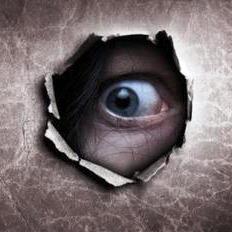If You're Paranoid, Is Your Anxiety Real?
If you have an anxiety disorder and are paranoid, is your anxiety real? Most people with anxiety are intimately familiar with the statement, “Just because you’re paranoid doesn’t mean people aren’t out to get you.” It has been said to the people around us to explain that, while we fully acknowledge our anxiety issues, it doesn’t mean that what we are worried about isn’t worthy of anxiety. Anxiety isn’t just a disorder; after all, it serves a purpose. But when you do have an anxiety disorder and are paranoid, how do you decide if your anxiety is real?
Determining whether or not anxiety is real or not when you're paranoid is as necessary a skill as locking our doors at night. Most people take these skills for granted, giving little thought to the mechanics involved in both separating worry and locking a door. People with anxiety disorder — folks like me — have to give this a lot more thought. The goal is the same for both parties, but the steps to achieve them are very different.
Real Anxiety and Paranoia: Separating Positive Anxiety from Negative Anxiety
Separating positive anxiety from negative anxiety is crucial because you don’t want to ignore your body’s natural warning signals. But we also have to acknowledge that our bodies don’t always give us accurate information.
 For the purpose of this article, we are going to call anxiety that serves a purpose “positive anxiety” and anxiety that serves no purpose “negative anxiety.” An example of positive anxiety would be what I feel when driving in inclement weather. An example of negative anxiety would be if I thought the mailman doesn’t care about me.
For the purpose of this article, we are going to call anxiety that serves a purpose “positive anxiety” and anxiety that serves no purpose “negative anxiety.” An example of positive anxiety would be what I feel when driving in inclement weather. An example of negative anxiety would be if I thought the mailman doesn’t care about me.
The first step to determining if anxiety is real when you're paranoid is to stop and analyze what is causing the anxiety. We need to be able to narrow this down to something. If we are feeling anxiety and there is no obvious cause, it is a safe bet that we have nothing that is worth worrying about. Feeling anxious over nothing is the definition of an anxiety disorder and paranoia. If a discernible cause is present, then we move on to the next step: why?
Why is this causing us anxiety? Does worrying about it serve any actual purpose? In the example of inclement weather, the why is “so we will slow down and drive more safely.” It’s a perfectly good reason to be worried.
Without such good reason, there is no purpose for the anxiety. This, of course, doesn’t make the anxiety magically disappear, but it can help begin the process of getting past it. This is where it is good to pull in other coping strategies we have learned in this blog.
Anxiety is a big issue and generally involves a multi-pronged solution. I have learned over the years that it isn’t any single coping skill that allows me to move forward, but the successful implementation of multiple coping skills and one of these is being paranoid but determining if my anxiety is actually real.
You can find Gabe on Facebook, Twitter, Google+, LinkedIn, and his website.
APA Reference
Howard, G.
(2015, March 18). If You're Paranoid, Is Your Anxiety Real?, HealthyPlace. Retrieved
on 2026, February 27 from https://www.healthyplace.com/blogs/anxiety-schmanxiety/2015/03/just-because-youre-paranoid-doesnt-mean-your-anxiety-isnt-real
Author: Gabe Howard
I am glad to read this. I currently have a peaked anxiety episode and i have been trying to tell myself that it is nothing but my usual paranoid feeling but i thought about it and realized that the cause of the anxiety is real.
I agree with the positive and negative anxiety illustration.
THANKS FOR THIS ARTICLE.
Hi Shay,
I'm glad this article was able to help. Figuring out the difference between true anxiety and paranoia will help you be able to react better in the future. Of course it takes time, but it sounds like you're already well on your way.